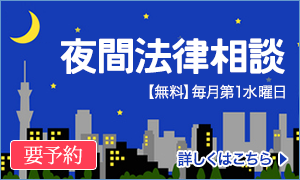The Legal Age to Drink in Japan
From the age of 16, Japanese teenagers can obtain a motorcycle or moped driver`s license. However, to obtain a “normal” driver`s licence, the applicant must be at least 18 years old when passing the final test. An 18-year-old can also legally buy a car. Just like a poker chip, these pachinko balls essentially work like money. This means that you cannot bring your own balls to play, but you have to rent them for about 1-4 yen each. You can use these balls to play, but also exchange them for cash depending on the purchase price. For example, if you bought 250 coins at 4 yen per ball for a total of 1,000 yen and hit the jackpot and increased your balls to 1,000, you can exchange those 1,000 balls for about 3,600 to 3,800 yen (although some processing fees may apply). Since you initially rented the balls for 1,000 yen, you earned about 2,800 yen as a net sum. Although it may seem like a game, it is not recognized in this way by Japanese law, where it is systematically defined as “public pleasure”. It is clear that pachinko salons and the pachinko industry in general fall into a legal gray area, as gambling itself is illegal in Japan. However, it is very popular among the Japanese and widely recognized as a popular pastime. Some people even live from pachinko. Nevertheless, underage smoking is still widespread, as Japan is still a very smoking culture.
In 1999, 19% of men aged 15 to 20 and 4.3% of women aged 15 to 20 reported smoking themselves. 42% of male smokers and 35% of female smokers said they became habitual before the legal age limit of 20. Although a lot of time has passed between then and now, I imagine the numbers are quite similar, but slightly better (just guess based on my own experience). Currently, the minimum voting age in Japan is 20. Although Parliament has confirmed the revised legal age of 18, these amendments to the Civil Code will not enter into force until April 1, 2022. This revision applies only to the right to vote and not to the age of majority in civil and criminal law. Japanese children start drinking when they enter high school. But drinking can also help people relax. With the intensity of the Japanese school system, it`s (almost) hard to blame someone who wants to calm down and relax. Alcohol is one way people do it, and while it`s a bad excuse, I almost want to compare teen alcohol use in Japan to teen smoking in America. Marijuana is very hard to find in Japan (and the penalty is high).
Neither is technically correct, although many would argue otherwise, I think. Alcohol is very easy to obtain compared to marijuana, and there is no penalty for violating alcohol law, just like marijuana and children in America. If a child wants to let go and escape the test hell for a few hours, they will do it this way (this and karaoke). However, in addition to alcohol laws for minors, there are no particularly strict restrictions on alcohol in Japan, and you can find it in convenience stores and supermarkets. You can also buy alcohol not only in bars and izakaya (Japanese-style pubs), but even in restaurant chains and fast food outlets. While they`re no longer common in big cities like Tokyo and Osaka, in some areas you can even buy alcohol from vending machines. In other words, since you can essentially get your hands on alcohol anytime and anywhere, regulation in Japan may seem a bit loose to some. The rules of where you can drink alcohol are also quite relaxed. Whether in front of a supermarket or restaurant, in a public park, in train stations or even on a bullet train, you can usually drink anywhere outside or in public places. Keep in mind that drinking in some places, such as on trains in Japan, is considered rude. Many visitors to Japan will see drunk office workers dozing off in train stations, on a train and even on the street. Especially for people who come from countries where drinking and smoking begins at the age of 18, the age restrictions in Japan for buying and consuming alcohol as well as the smoking age in Japan can be surprising: they must be 20 years old and in possession of a valid ID (for foreigners, a residence permit is sufficient).
If you want to buy alcohol, present it, much like you would in your own country, pay and leave with the libations of your choice. In Japan, as in other countries, you can be arrested if you are deemed too young – a flattering situation for some and an obstacle for others! This follows the revision of the Civil Code, which first set the legal age at 20 in 1876. This is the first time in more than 140 years that this has changed. In addition, businesses must apply for a special permit to serve food and beverages or operate a late-night entertainment venue. To avoid these restrictions, many concert houses schedule shows that end from 22:00 to 23:00 and clean completely around midnight. The conclusion of the live shows at 22:00 also helps to avoid conflicts with the surrounding residents. According to international music industry standards, this means that concerts in Japanese concert halls have earlier start and end times. To put it bluntly, Japanese houses attract customers by circumventing a number of regulations. The enjoyment of local drinks is an integral part of a trip for many travelers. It`s even more fun when you`re in a group or spontaneously find a local drinking buddy in a small, atmospheric bar! The legal drinking age in Japan is 20.
Although this age varies from country to country, as long as you are over 20 years old, you can drink freely in Japan. (Be sure to bring your passport for ID.) As in many other countries, people under the age of 20 cannot buy alcohol. Some stores will ask you for identification to confirm your age. Alcoholic beverages are sold not only in liquor stores in Japan, but also in supermarkets and convenience stores. Especially convenience stores sell alcohol 24/7. Nowadays, there are hardly any vending machines offering alcohol in Japan, but you will sometimes see it in rural areas. Some people may think that the regulations for the sale of alcohol are softer than elsewhere. Japan also has other rules and customs regarding alcohol that are different from other countries. If you take the train late at night, you might be surprised to see a company employee sleeping at the station or in the car. In addition to crime prevention issues, Japan`s laws on public drinking are generally relaxed.
This means that it is legal to drink in public in Japan. You can consume alcohol in parks, at the train station or – although frowned upon in most social situations – even on a train. The classic Back to the Future was also rated PG12. This classification must avoid any undue influence by the scenes in the film in which the minors drink and smoke. Of the 190 countries, 61% have an alcohol consumption age of 18 or 19. The United States and 11 other countries have an MLDA of 21, the highest MLDA of any country where it is legal to drink (although some parts of India have drinking ages of 25 and 30). Alcohol is banned in 16 countries, all Muslim, although some have exceptions for non-Muslims. Why is alcohol consumption an important part of Japanese culture? For a society as reserved as Japan`s, alcohol is the perfect icebreaker.
When people are drunk, they talk and share their opinions more openly. Therefore, a drink is a unique opportunity to meet people outside of formal relationships – especially for colleagues who talk less at work than in the West. Company employees rarely refused to drink with their superiors; Otherwise, they miss the promotion. Drinking has such an important meaning that the Japanese even coined the word “nomination” for it. This hybrid word combines the Japanese word for drinking “nomu” and the English word “communication”.



